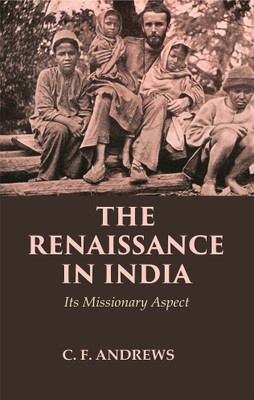The Renaissance in India: Its Missionary Aspect(Paperback, C. F. Andrews)
Quick Overview
Product Price Comparison
About The Book: The Hindus regarded more the inner significance of the event. The old-time glory and greatness of Asia seemed destined to return. The material aggrandisement of the European races at the expense of the East seemed at last to be checked. The whole of Buddha land from Ceylon to Japan might again become one in thought and life. Hinduism might once more bring forth its old treasures of spiritual culture for the benefit of mankind. Behind these dreams and visions was the one exulting hopeŌĆöthat the days of servitude to the West were over and the day of independence had dawned. Much had gone before to prepare the way for such a dawn of hope: the Japanese victories made it, for the first time, shining and radiant. A religious Reformation has been advancing side by side with the new Renaissance. Christian Missions have been silently but surely leavening the old religious conceptions of the people of the East, and wherever they have spread there has been a quickening of new life. The future is all with the new. There can be no ultimate return to the old when once it has been left behind. Matthew Arnold's muchquoted lines concerning the Roman Empire and the East are no longer true of the new civilisation with which the East is coming into contact in our own times. About The Author: Charles Freer Andrews (12 February 1871 ŌĆō 5 April 1940) was an Anglican priest and Christian missionary, educator and social reformer, and an activist for Indian independence. He became a close friend of Rabindranath Tagore and Mahatma Gandhi and identified with the Indian liberation struggle. He was instrumental in convincing Gandhi to return to India from South Africa, where Gandhi had been a leading light in the Indian civil rights struggle. C. F. Andrews was affectionately dubbed Christ's Faithful Apostle by Gandhi, based on his initials, C.F.A. For his contributions to the Indian independence movement, Gandhi and his students at St. Stephen's College, Delhi, named him Deenabandhu, or "Friend of the Poor". Andrews had been involved in the Christian Social Union since university, and was interested in exploring the relationship between a commitment to the Gospel and a commitment to justice, through which he was attracted to struggles for justice throughout the British Empire, especially in India.


